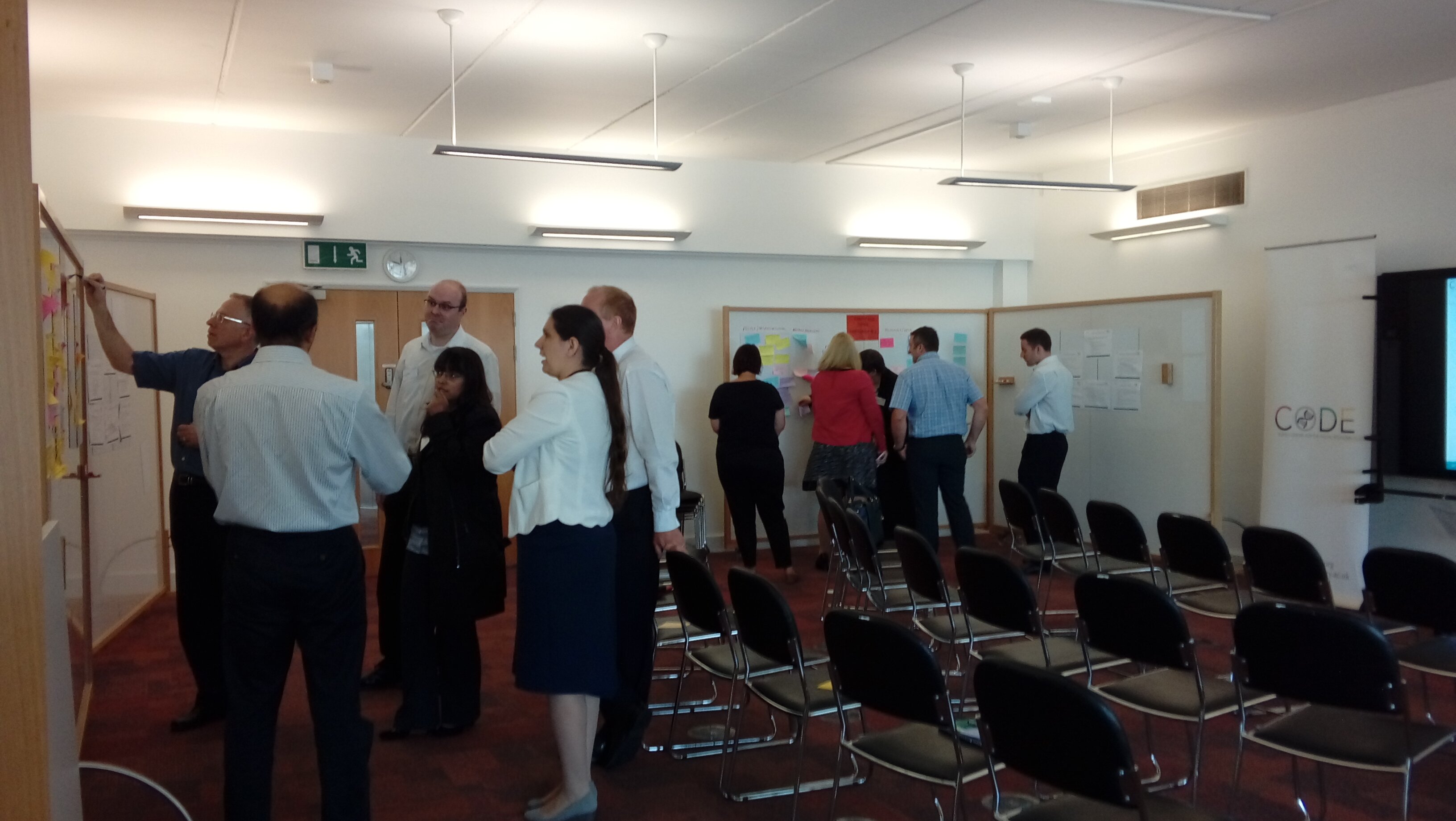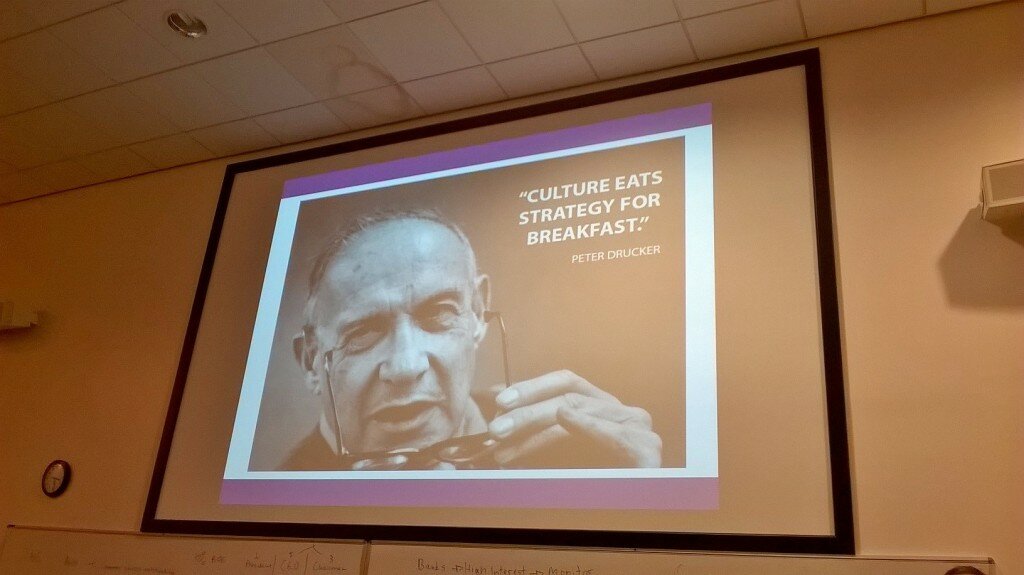Cities are canvases for innovative interactions and relationships:
- Creative industries flock to urban environments, taking the advantage of shared knowledge and a density of specialised and potential customers, suppliers, designers and workers to create new tools, instruments, technologies, methods, products and services;
- Innovation processes in cities benefit from the diversity in urban environments, providing a range of rich and extensive stimuli;
- Firms operating in big cities are demonstrably more innovative than those in small ones.
We recently announced that DESIGNSCAPES “Building Capacity for Design Enabled Innovation in Urban Environments” has been selected to receive funding from EU H2020 Framework. The Surrey team for the project is led by CODE team members Professor Lampros Stergioulas and Dr Munir Abbasi. The overarching aim of the DESIGNSCAPES project is to exploit the generative potential of urban environments in the highest possible number of European cities and foster Design Enabled Innovations by existing enterprises, start-up companies, public authorities and agencies, and other urban stakeholders. It’s participative innovation and design, with a policy remit.
Now, we can reveal the main features of the DESIGNSCAPES project:
- It leverages Design Thinking and Design Driven Innovation concepts as blueprints for the identification and replication of successful cases – focusing on the one hand on integration of citizens/customers and other stakeholders into the innovation processes, and on the other hand on generation of “killer” innovative product or service concepts that are disruptive to both technology and market;
- It focuses directly on the scalability potential of Design Enabled Innovation, through the search for and definition of emerging innovation ecosystems, and the creation of ‘fertilising’ environments;
- It proposes an original evaluation, replication and impact assessment framework for newly emerging initiatives, which assesses outcomes throughout the whole innovation lifecycle – from design stage to post-project exploitation, sustainability and scaling (up and out);
- It uses a supportive governance approach aimed at trust building, learning by doing, and capacity building at all levels of innovation. Design Enabled Innovations are thus supported and developed beyond the grant dates and into a design-focused future;
- The project will publish a White Paper on Design Enabled Innovation, and deliver Policy Recommendations and Strategic Road Map on how to support Design Enabled Innovations on local, regional, national and EU levels and across various policy domains, with a dynamic urban focus.
HOW DOES IT WORK?
We’re addressing a pressing need to find untapped sources of growth and employment, renew the legitimacy of public policy-making (especially through greater citizen involvement), and deliver better public services for all.
For example, explosive economic growth can derive from urban import replacement. Import replacement occurs when a city begins to locally produce goods that it formerly imported. In the mid-20th century, Tokyo imported a lot of bicycles, which created a large market for repair shops. Eventually, those shops began making their own parts, which led to manufacturing whole bicycles, and then exports. This can only happen in a city where there is an abundance of repair shops, which create and increase the local culture of manufacturing; a small town is unlikely to generate enough demand for a new component supplier, nor will it provide the network of relationships necessary to transform components into a full product.
Bicycles are, of course, a simplistic example. Yet in any city with a healthy tech sector, new entrepreneurs are following the same model: venture capitalists mixing with entrepreneurs; hardware experts running into software gurus; buyers working out of the same building with sellers. That’s how new work and new economies are created. Thus, import replacement can build up local infrastructure, skills, and production; further, the increased production is subsequently exported to other cities, giving those other cities a new opportunity to engage in import replacement, thus producing a positive cycle of growth. This focus on local culture is another cornerstone of our project. Through this, we aim at understanding the deepest connections between practice, policy and research and their impact on the success and sustainability of Design Enabled Innovation.
METHOD
DesignScapes will bring together 12 cities in at least 10 EU countries, and will generate 30 local workshops and seminars, three major Catalogues of Design Enabled Innovations with at least 120 initiatives, seven training modules, 10 virtual train-the-trainer sessions, and around 50 trained local facilitators and beneficiaries. With a global target audience of more than 1000 registered public and private decision-makers, social innovators and design thinking facilitators, DesignScapes is ambitious and innovative in its own scope and reach.
IMPACT
DesignScapes offers a methodology for widening access to innovation and engaging a range of people in the co-creation process. By discovering and revealing what works, what doesn’t work, and why, DesignScapes will strengthen evidence-based policy-making. Ultimately, the outputs of the project will encourage more ‘grassroots’ Design Enabled Innovation initiatives, new possibilities for up-scaling small Design Enabled Innovation experiments, and accelerated Design Enabled Innovation for growth.
The project received the rare top score of 15 out of 15 marks in the recent EU evaluation, and is due to start on 1 June 2017.
Cutting-edge research into today’s economic issues is one of CoDE’s many talents – follow us to find out the latest news.






